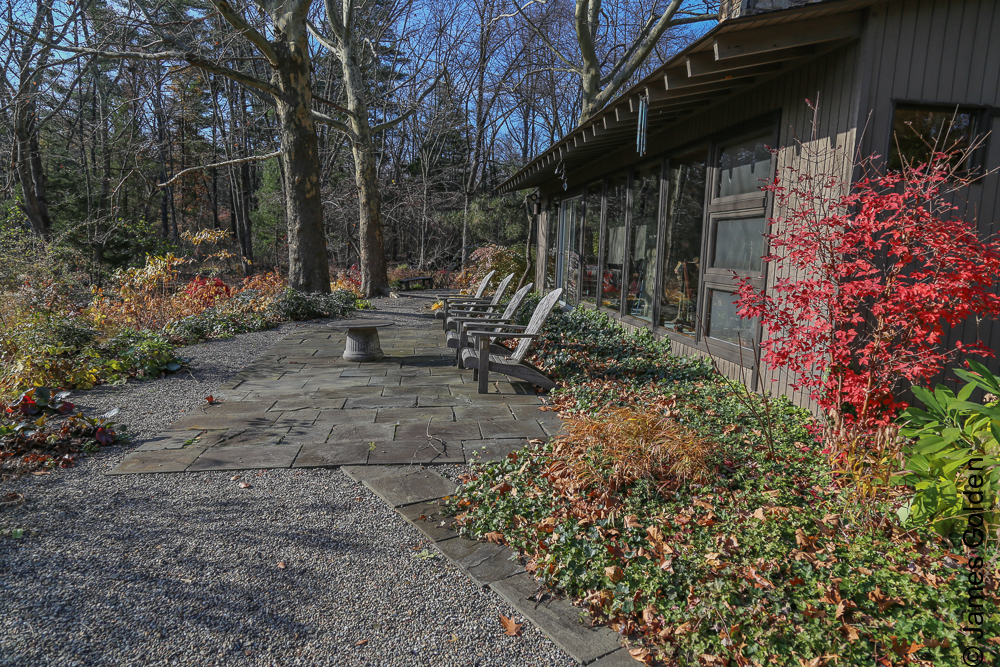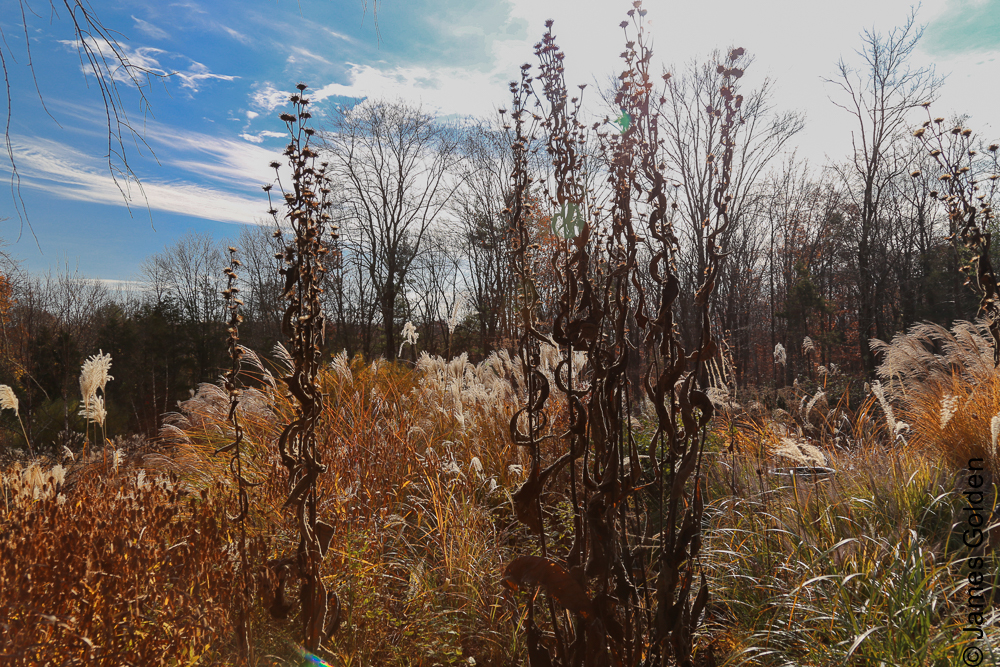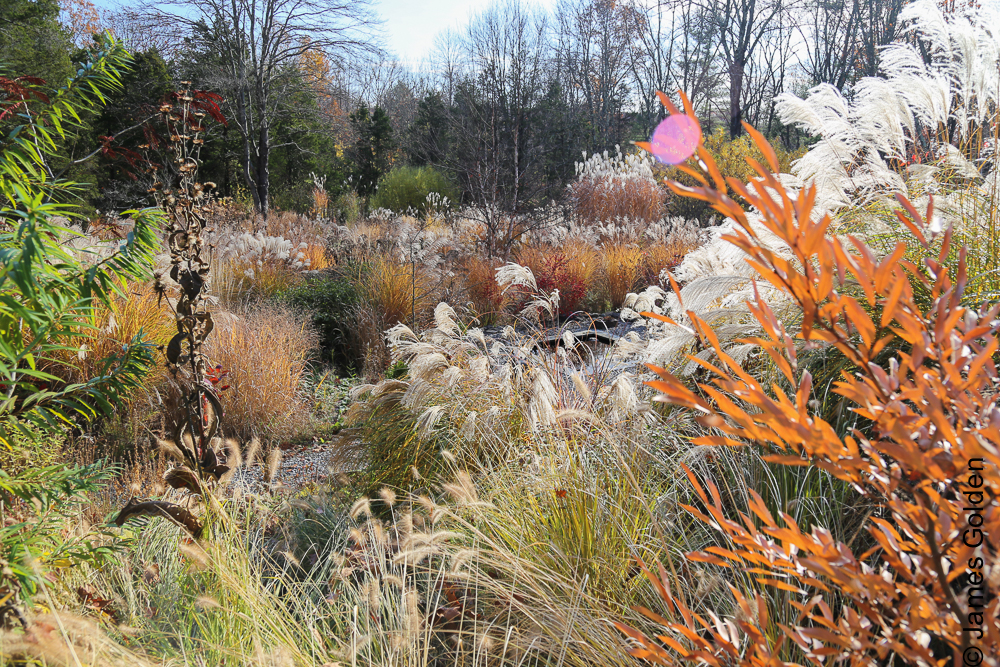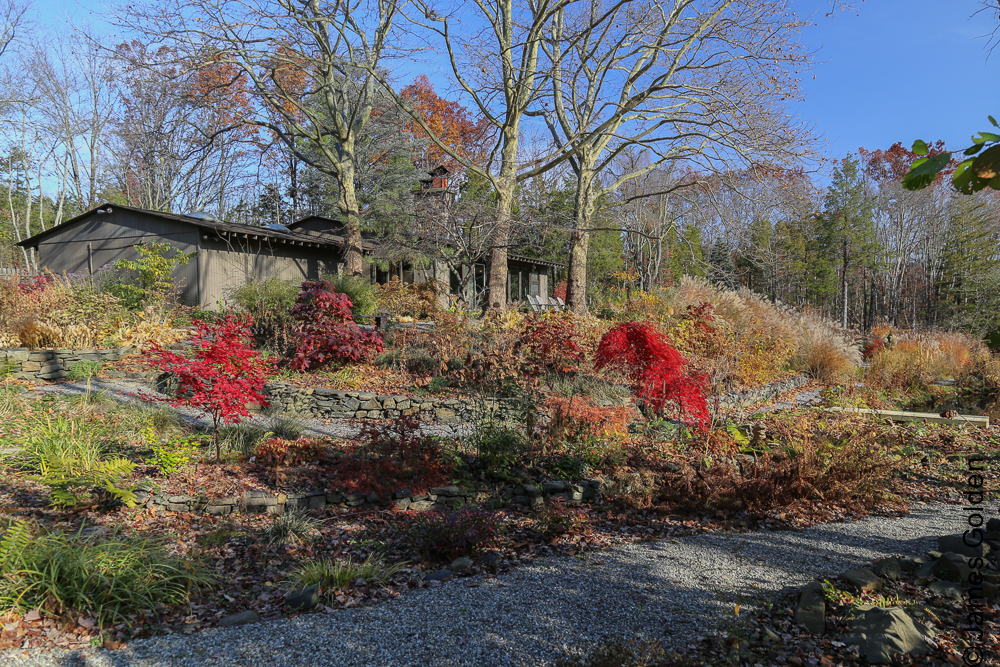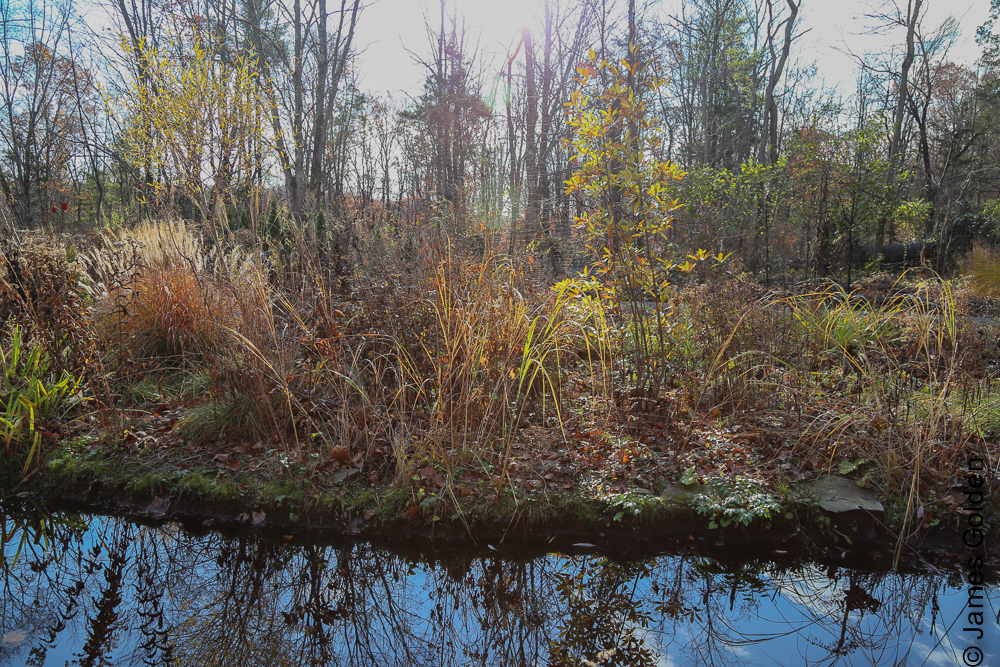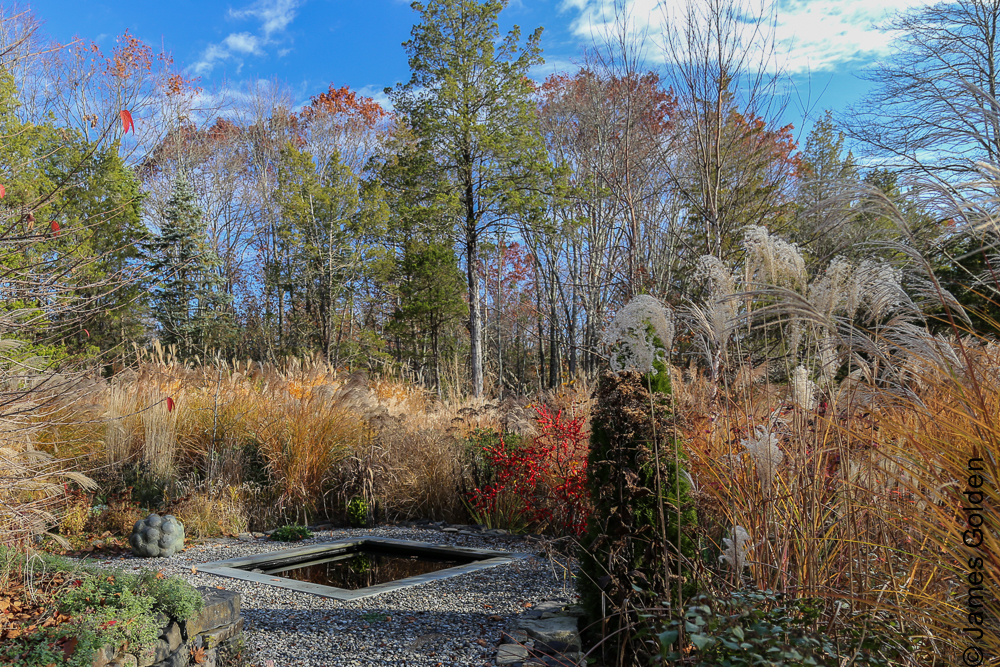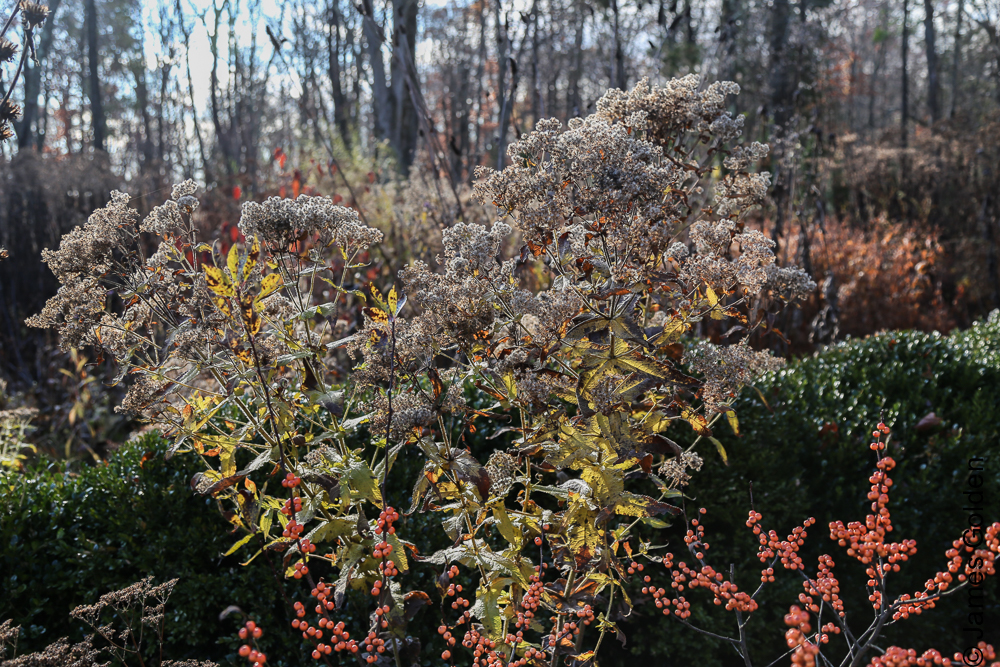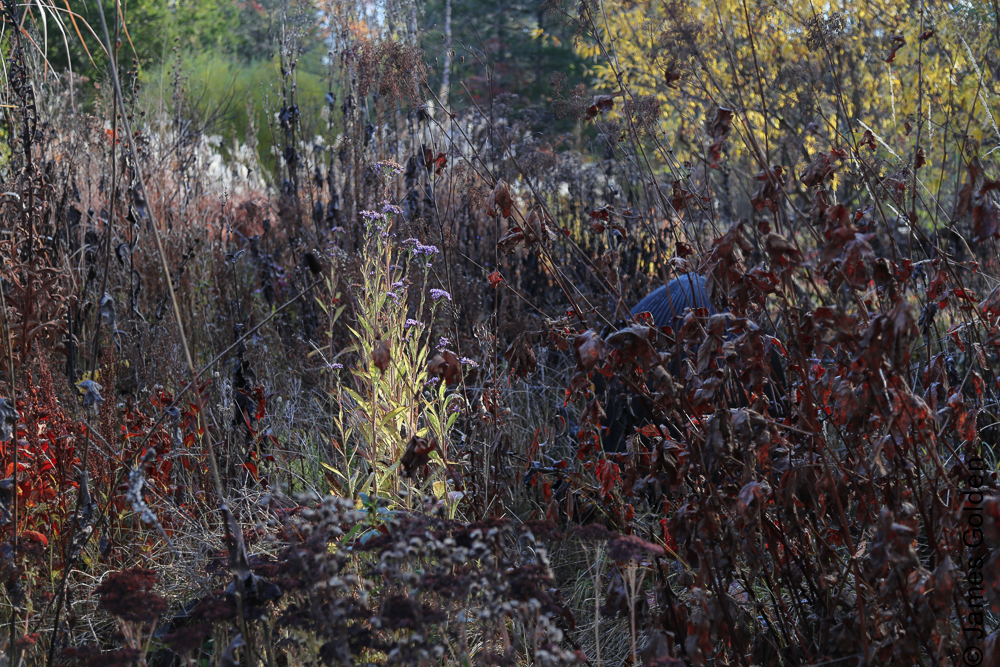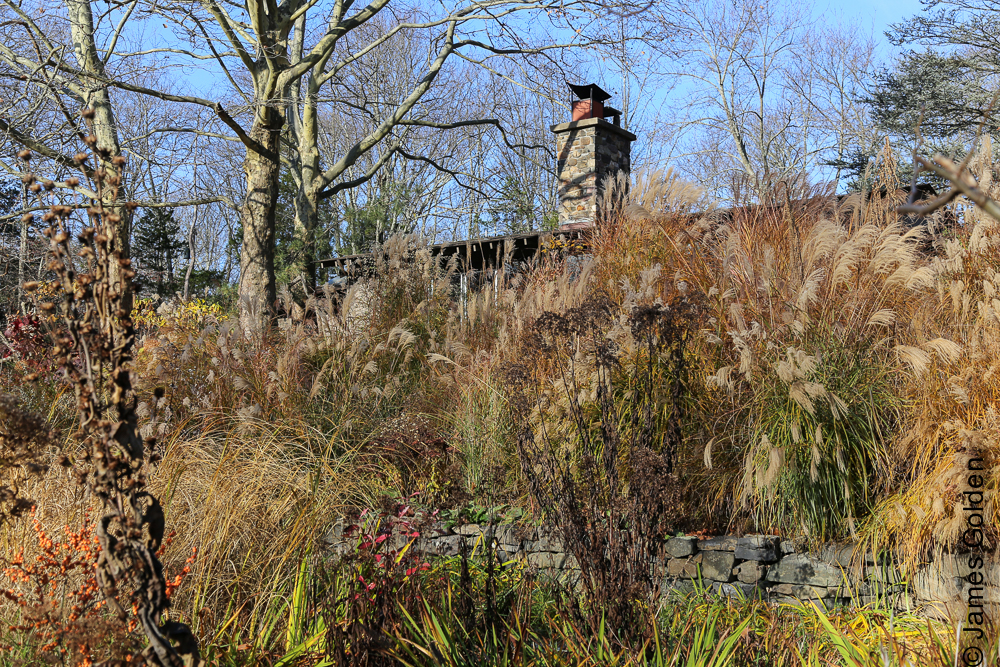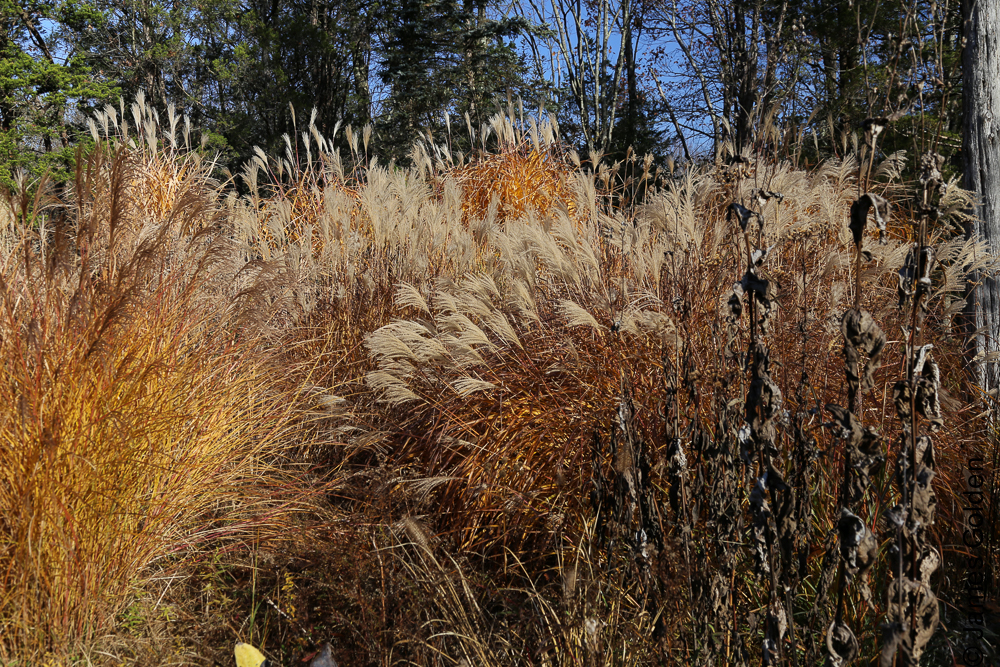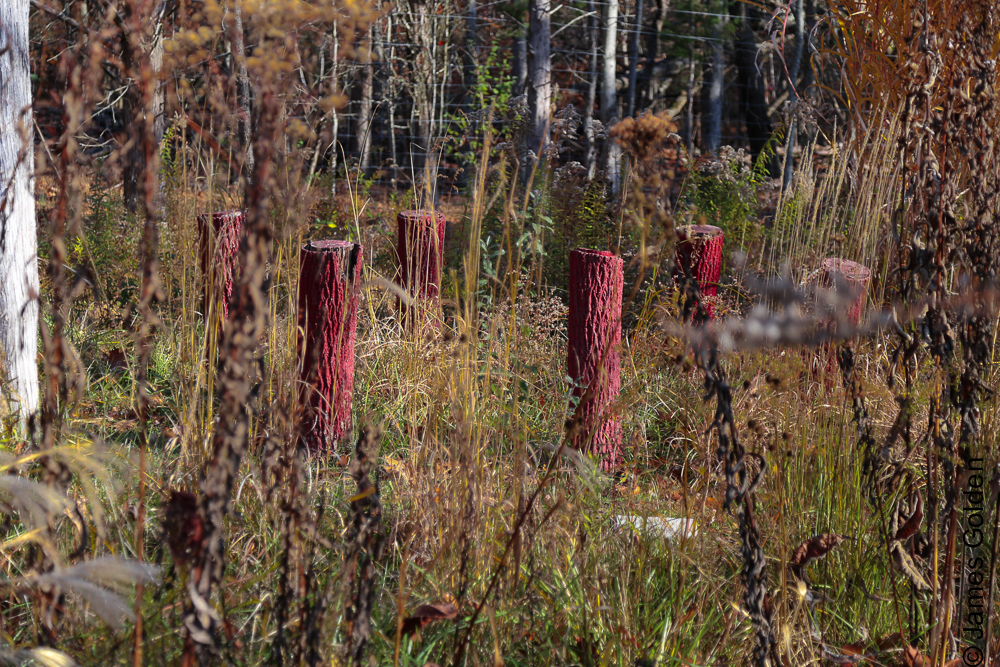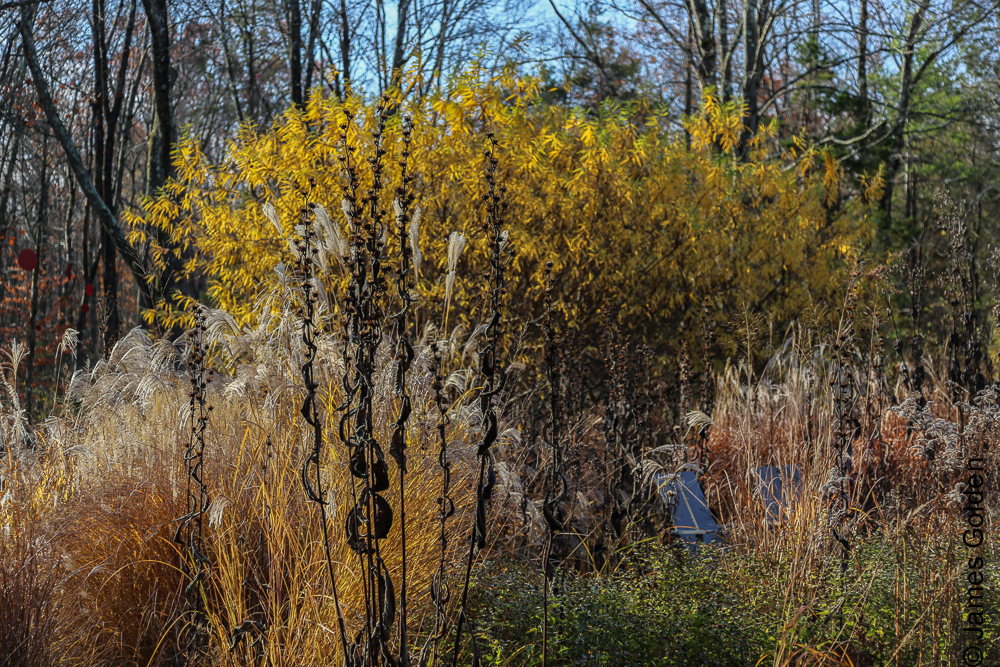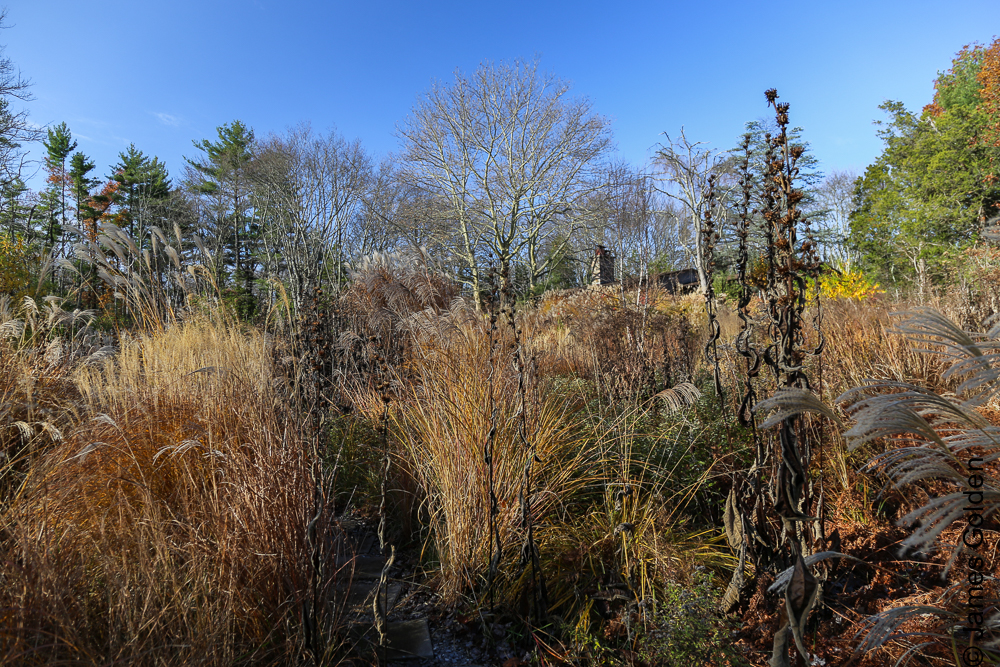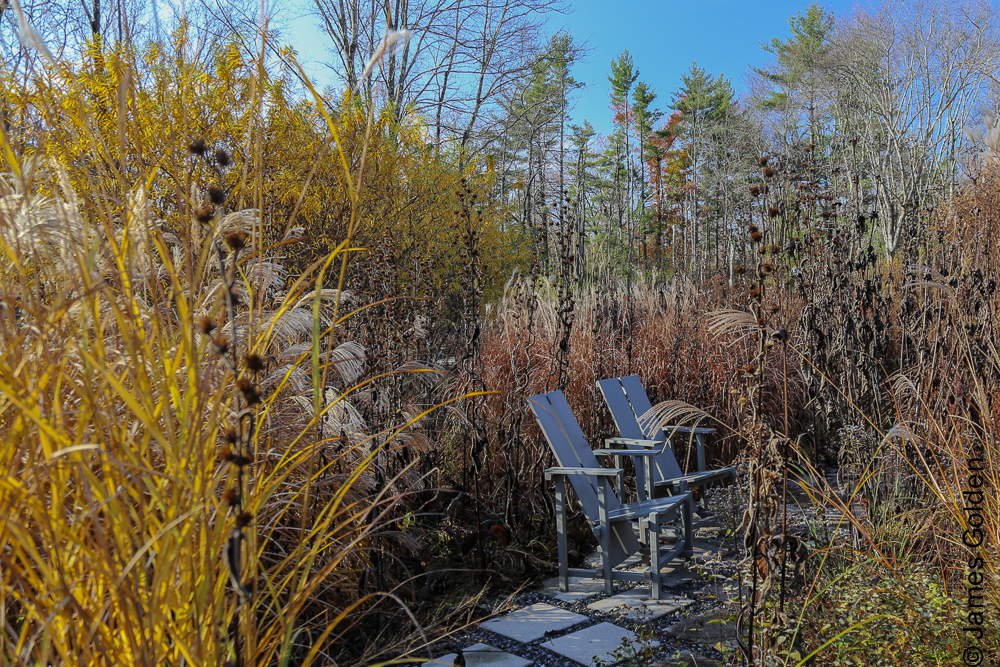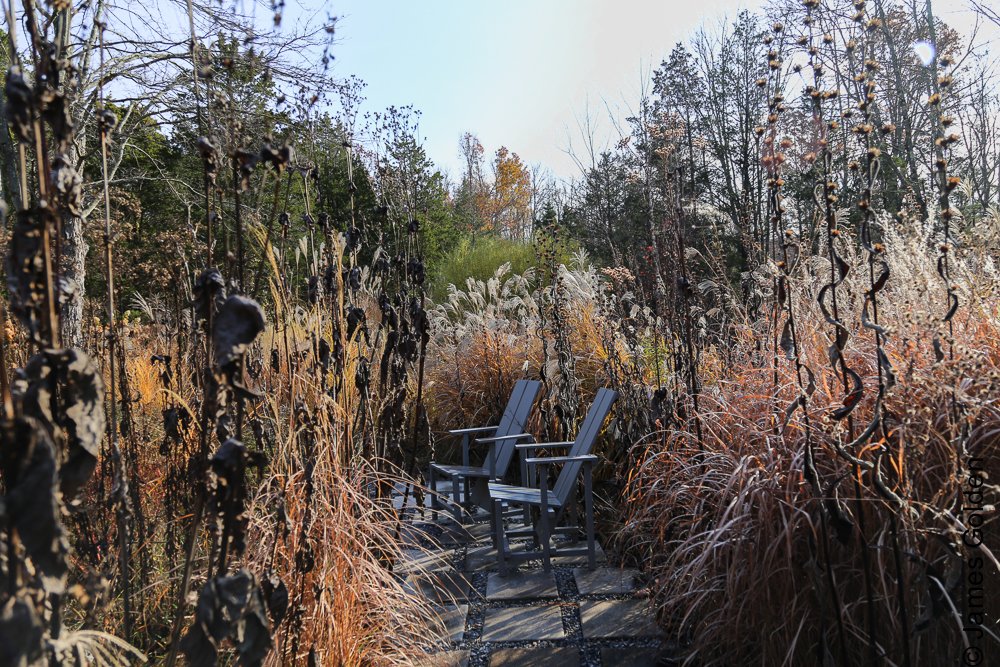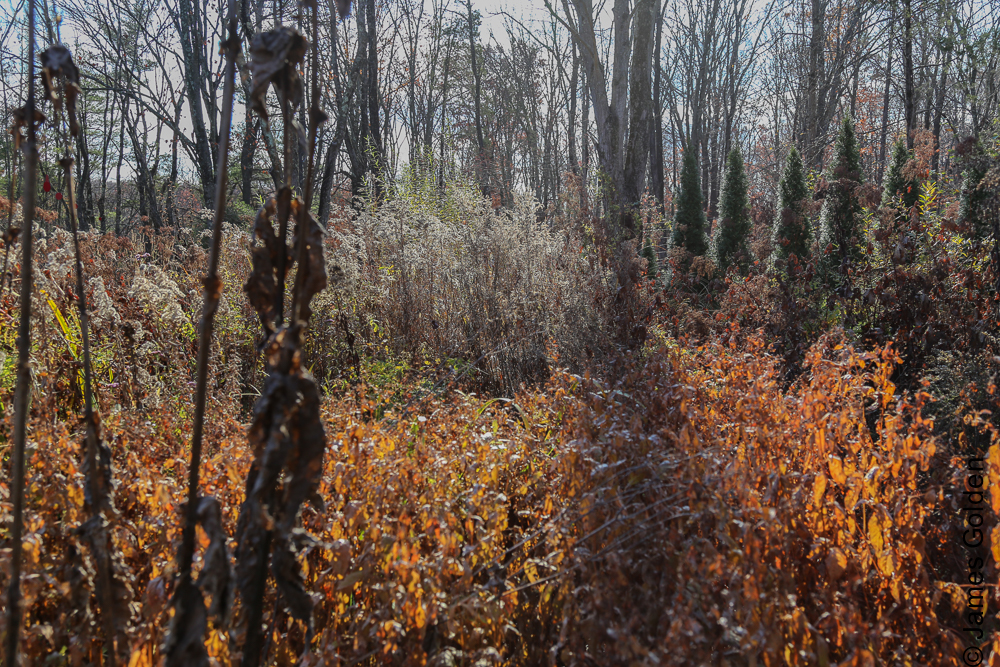Atmosphere in the dying garden

Last photos, taken November 13, before a small snow and plunging temperatures. Winter arrives in another month, but the last few days have felt like February. I've been reading about atmosphere and mood, but I'm not sure it's possible to put a name to what I feel in the garden. Perhaps it's too personal, perhaps it lives in the body and can't be described in words. Consider this--though the subject is literature, I think the experience of the garden is relevant. The text focuses on the German word Stimmung:"I would like to propose that interpreters and historians of literature read with Stimmung in mind ...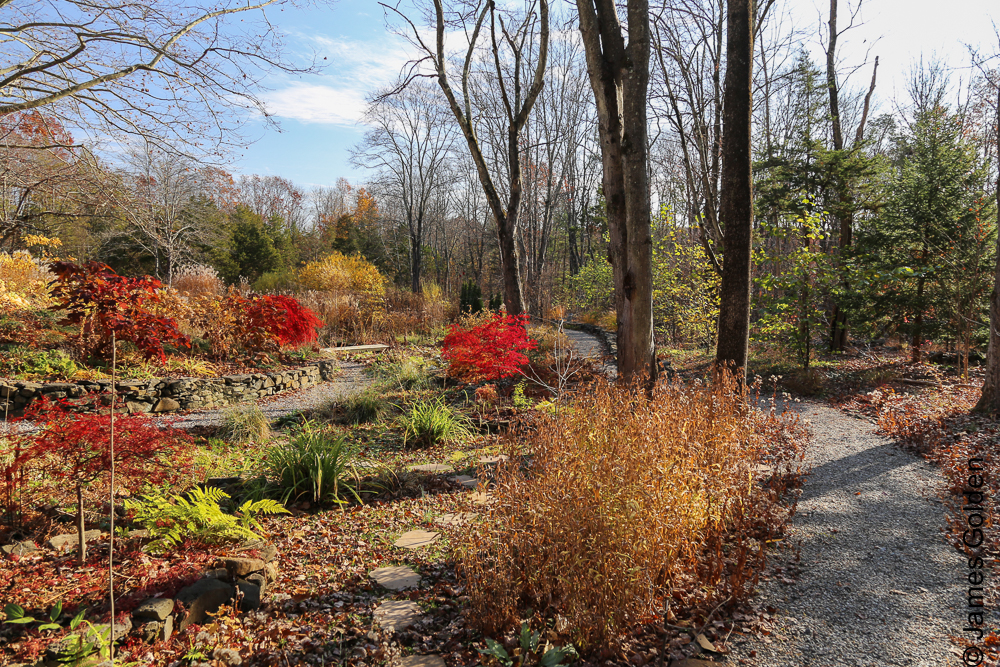 To gain awareness and appreciation of the different significations and shades of meaning that Stimmung conjures up, it is useful to look at the various clusters of words that translate the term into other languages. English offers 'mood' and 'climate.' 'Mood' stands for an inner feeling so private it cannot be precisely circumscribed. 'Climate,' on the other hand, refers to something objective that surrounds people and exercises a physical influence. Only in German does the word connect with Stimme and stimmen. The first means 'voice,' and the second 'to tune an instrument'; by extension, stimmen also means 'to be correct.' As the tuning of an instrument suggests, specific moods and atmospheres are experienced on a continuum, like musical scales. They present themselves to us as nuances that challenge our powers of discernment and description, as well as the potential of language to capture them.
To gain awareness and appreciation of the different significations and shades of meaning that Stimmung conjures up, it is useful to look at the various clusters of words that translate the term into other languages. English offers 'mood' and 'climate.' 'Mood' stands for an inner feeling so private it cannot be precisely circumscribed. 'Climate,' on the other hand, refers to something objective that surrounds people and exercises a physical influence. Only in German does the word connect with Stimme and stimmen. The first means 'voice,' and the second 'to tune an instrument'; by extension, stimmen also means 'to be correct.' As the tuning of an instrument suggests, specific moods and atmospheres are experienced on a continuum, like musical scales. They present themselves to us as nuances that challenge our powers of discernment and description, as well as the potential of language to capture them. I am most interested in the component of meaning that connects Stimmung with music and the hearing of sounds. As is well known, we do not hear with our inner and outer ear alone. Hearing is a complex form of behavior that involves the entire body. Skin and haptic modalities of perception play an important role. Every tone we perceive is, of course, a form of physical reality (if an invisible one) that 'happens' to our body and, at the same time, 'surrounds' it. Another dimension of reality that happens to our bodies in a similar way and surrounds them is the weather. For this very reason , references to music and weather often occur when literary texts make moods and atmospheres present or begin to reflect upon them. Being affected by sound or weather, while among the easiest and least obtrusive forms of experience, is, physically, a concrete encounter (in the literal sense of en-countering: meeting up) with our physical environment.
I am most interested in the component of meaning that connects Stimmung with music and the hearing of sounds. As is well known, we do not hear with our inner and outer ear alone. Hearing is a complex form of behavior that involves the entire body. Skin and haptic modalities of perception play an important role. Every tone we perceive is, of course, a form of physical reality (if an invisible one) that 'happens' to our body and, at the same time, 'surrounds' it. Another dimension of reality that happens to our bodies in a similar way and surrounds them is the weather. For this very reason , references to music and weather often occur when literary texts make moods and atmospheres present or begin to reflect upon them. Being affected by sound or weather, while among the easiest and least obtrusive forms of experience, is, physically, a concrete encounter (in the literal sense of en-countering: meeting up) with our physical environment.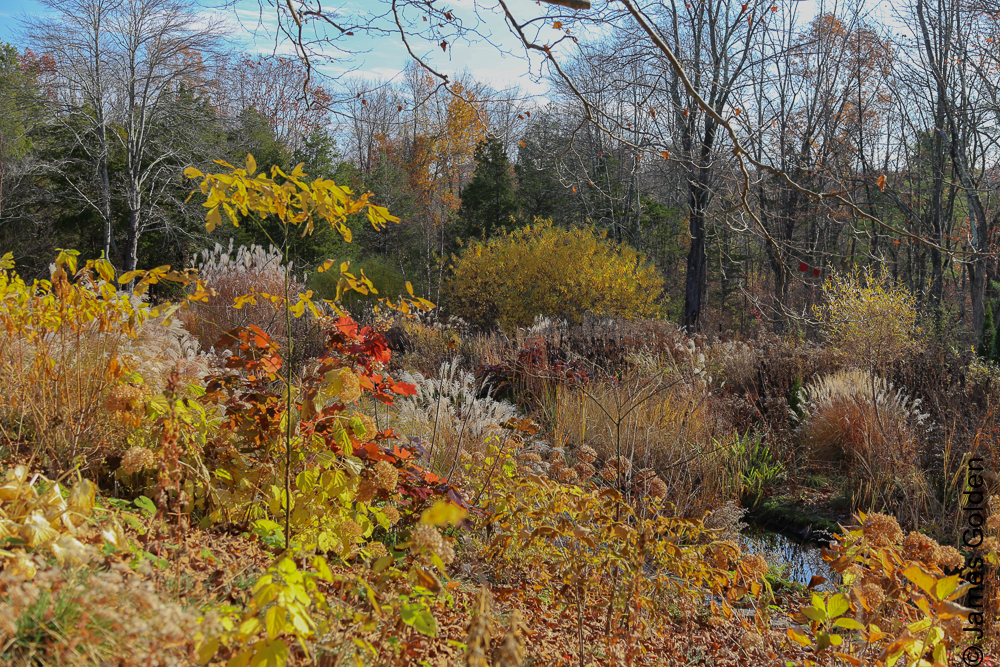 Toni Morrison once described the phenomenon with the apt paradox of 'being touched as if from inside.' She was interested, I imagine, in an experience familiar to everyone: that atmospheres and moods, as the slightest of encounters between our bodies and material surroundings, also affect our psyche ...' -- from Hans Gumbrecht (2012-10-03). Atmosphere, Mood, Stimmung: On a Hidden Potential of Literature (p. 4). Stanford University Press. Kindle Edition.
Toni Morrison once described the phenomenon with the apt paradox of 'being touched as if from inside.' She was interested, I imagine, in an experience familiar to everyone: that atmospheres and moods, as the slightest of encounters between our bodies and material surroundings, also affect our psyche ...' -- from Hans Gumbrecht (2012-10-03). Atmosphere, Mood, Stimmung: On a Hidden Potential of Literature (p. 4). Stanford University Press. Kindle Edition.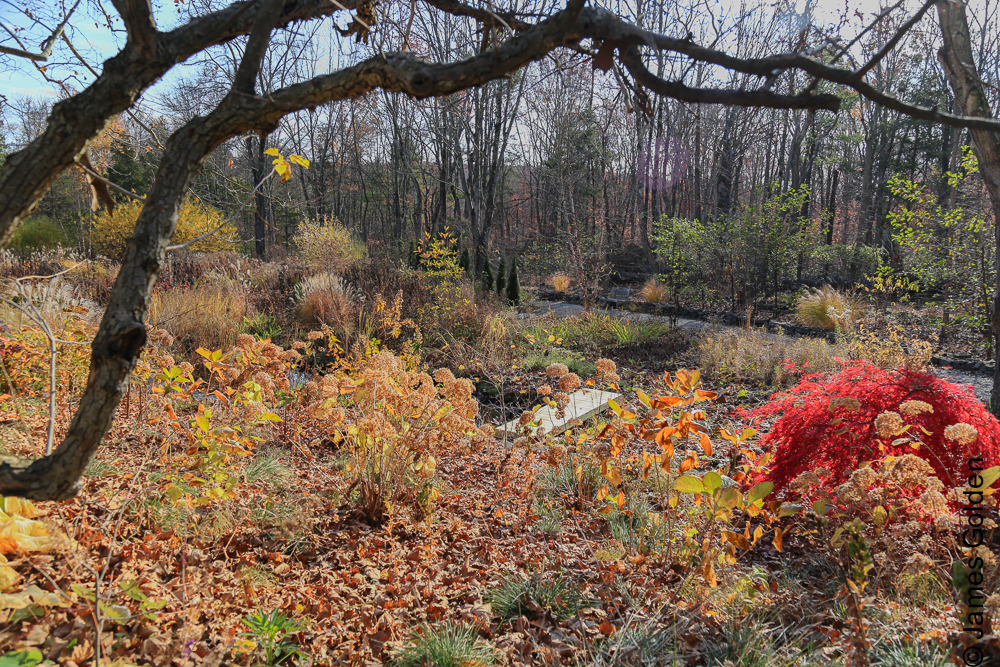 More on this later.
More on this later.


